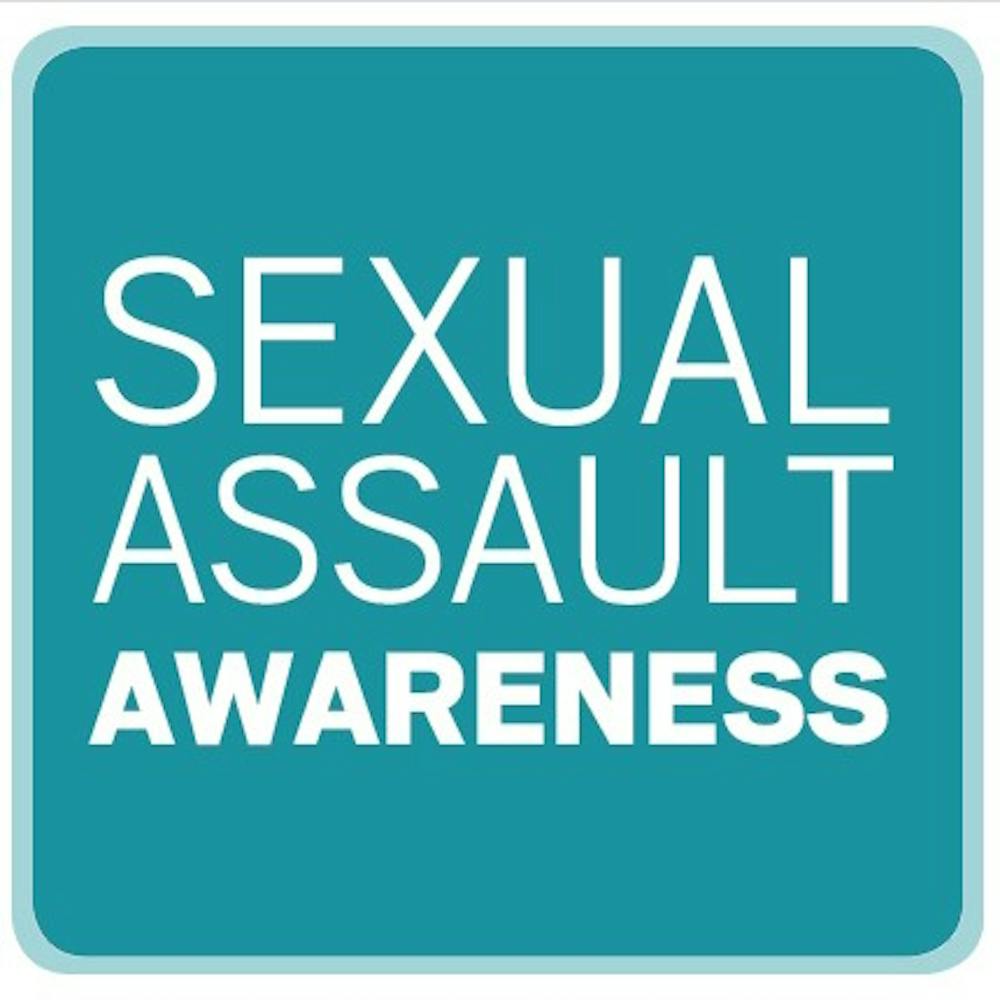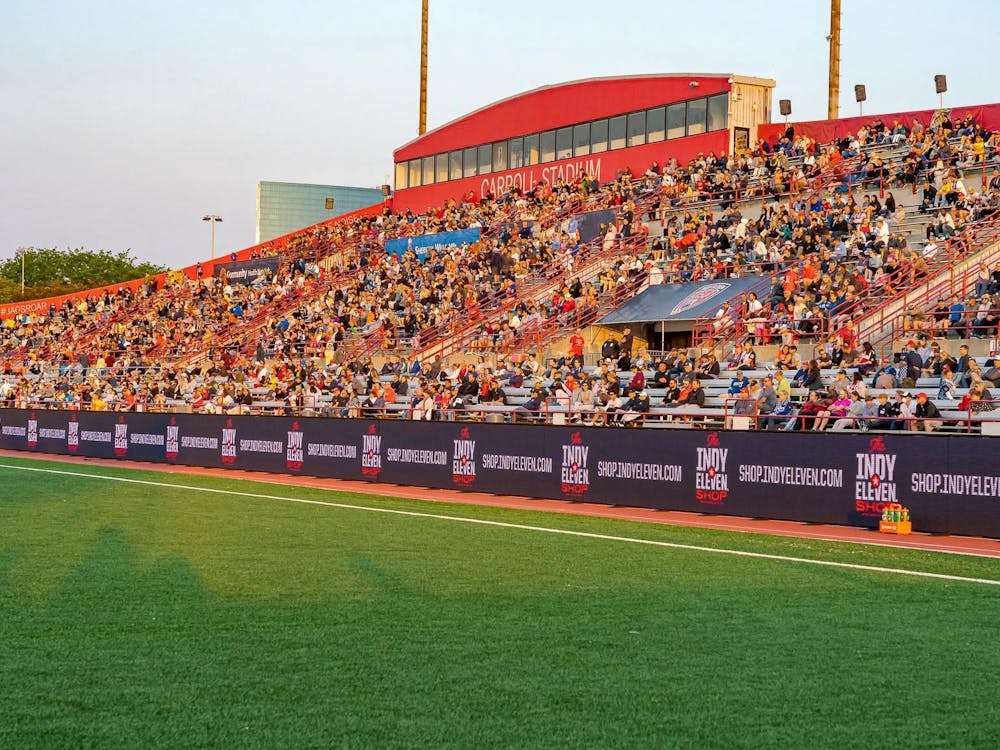Editor’s Note: This is the first story in a four-part series on campus sexual assault for Ball State’s sexual assault awareness week.
If a person commits sexual assault on Ball State’s campus, they are not likely to ever sit behind bars.
That’s because when the university—any university—investigates a sexual assault, it is considered a policy violation and not a criminal matter as it would be if reported to a law enforcement agency.
Even when someone reports sexual assault only to the university, the most common punishment is a suspension, according to documents obtained in an email through Joan Todd, university spokesperson.
In 2013, the number of sexual assaults reported to Ball State almost doubled from the previous year, according to figures that the university is required to report to the U.S. Department of Education. Ball State has the second highest sexual assault numbers out of the 12 universities in the MAC, behind Miami University, with 18 total reported cases in 2013. Title IX Coordinator for Student Affairs Katie Slabaugh attributes this increased number to improved reporting.
But this number is only a fraction of the actual sexual assaults that occur on campus each year. An estimated 68 percent of sexual assaults go unreported, according to the Rape, Abuse and Incest National Network, and the perpetrators never receive any kind of punishment.
A U.S. Department of Justice study said the top reason people don’t report sexual assaults is because it is a personal matter that others didn’t report because of a fear of reprisal, because they didn’t think it was important enough or because they didn’t think the police could do anything about it.
Compared to all other age groups, college-aged women are four times more likely to be sexually assaulted, according to the Rape, Abuse and Incest National Network.
Allison Wynbissinger, Ball State’s victim advocate, said many students don’t report because they don’t consider what happened to them to be rape. She said many think of the stereotype that rapes are committed by strangers in the middle of the night.
“So when some of our students have gone out and they’re drinking with people they know, and this person that they know, trust, they’ve hung out with before walks them back into their room and ends up having sex with them when they pass out or against their will, but doesn’t necessarily use physical force or hold them down, maybe in their mind they’re like, ‘OK, well, this is what I’ve always heard is sexual assault and what happened to me doesn’t fit in that box,’” Wynbissinger said.
Clery reports
One reason for low reported numbers is how the university defines what is on campus and what isn’t.
Ball State must report all sex offenses to the federal government because of the Clery Act, which requires public universities to keep track of and disclose crime statistics on and around campus each year.
The U.S. Department of Education decides what is considered to be on campus. Those boundaries don’t include the approximate 60 percent of students who live off campus at Ball State, according to documents in an email from Todd. In fact, the boundaries for Clery end beyond the sidewalks that border campus.
Mike Gillilan, director of student rights and community standards, said the DOE doesn’t want universities to go outside of the decided boundaries because it makes it too difficult to compare schools.
Handling cases
Three agencies in Muncie investigate charges of sexual abuse:
- Muncie Police Department
- University Police Department
- The university itself
While there is less burden of proof in a case reported to the university—it needs be “more likely than not” to have occurred—the penalties are also less severe. A person found guilty would be in violation of school policy, and the penalty could be as light as a school suspension or disciplinary probation.
Universities handle sexual assaults to give survivors of sexual assault another option to report to. Reporting to the university involves a shorter process, Slabaugh said.
Ball State has reported 38 sexual assault cases in the Clery reports since 2012. Of those, 28 were either reported to both the university and the University Police Department, or solely to UPD, according to documents obtained in an email from Todd. The remaining 10 were only reported to the university.
Since August 2012, the university has investigated 49 cases of sexual assault, including 11 that were not reported for Clery Act purposes, according to documents obtained in an email from Todd. Of those, only nine ended with any kind of punishment, most of which were school suspensions. The other 40 cases investigated had insufficient information for the case to proceed.
The university would not release the names of the students found responsible for sexual misconduct policy violations because the names are not compiled by category of offense, and it could lead to the identification of the victims, whose identity is protected under the Family Educational Rights and Privacy Act (FERPA), according to the Office of University Compliance.
Slabaugh said faculty, staff and administration care about students’ well-being on campus, which is why the university should be able to handle these cases.
“My feeling … would be, even if we were not required to do so, universities have historically had structures in place [to help victims],” Slabaugh said. “All of those things are aiming toward a healthy, positive experience for students.”
However, a British research psychologist who specializes in the psychology of sexual abuse said to her, the idea that universities can handle something as serious as sexual assault cases is “insane.”
“If someone was murdered on campus, would they also take over the criminal justice part of that, or would the police be like, ‘Oh no no, that’s us?’” Nina Burrowes said. “Because sexual assault and murder, they both go under the category of serious crime.”
In the United Kingdom, all reported sexual assault cases are investigated by the police, she said.
Burrowes said the fact that the U.S. is having so many problems with universities not doing a good job dealing with sexual assault cases is evidence that this isn’t the way to do it.
“Someone cheats on an exam, great, fine, perfect,” she said. “But rape? That’s just insane. I wonder if colleges have thought of the impact they’re having on the offenders. It’s having an impact on them too, along the lines of, ‘That is OK, carry on as you are, it’s not really important.’"





